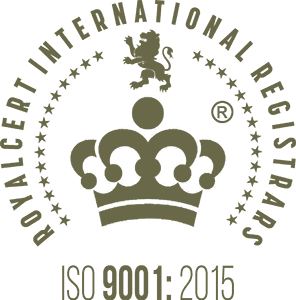Kite makers in 5th century China would have been as entranced by Leonardo da Vinci’s 15th century paintings of the Flying Machine as he might have been by the 19th century’s Concorde. A thousand years’ worth of progress seems to have been made in the two hundred years it took to get from ‘lighter than air’ hot air balloons and airships to the Wright’s Brother’s ‘heavier than air’ gliders and the launch of modern aviation in 1903.
Fast forward a mere 73 years and the first supersonic flight took to the skies above Europe. Perhaps time-travel will be on the wings in another 73. Who knows!
In the meantime, the joy of flying comes with the headache of managing the aviation industry (aviation from the latin avisbird … ). And as the industry has grown, so too has the need for aviation professionals, and given its breakneck speed over the last 30 years, consultants (consult from the Latin consulere, take counsel …).
Aviation: before the pandemic
Pre-pandemic global passenger air traffic growth reached 5% per year, well above global economic or GDP growth of 2.8% per annum. Driving this growth were both supply and demand side changes. On the one hand were deregulation, Open Skies Agreements, the emergence of low cost carriers (LCCs) and increased price competition as airlines vied for customers and their loyalty provided greater opportunity for travel. On the demand side, changing demographics, economic growth and therefore rising disposable incomes across North America and Western Europe enabled greater ability to travel. Domestic and regional travel took off and then came the explosion of travel amongst the middle class bulge as working people from Brazil to China and India to Russia took to the skies. Many more have followed since especially as nations around the world began to invest in tourism as a major source of GDP growth.
Aviation: after the pandemic
Though the pandemic ravaged both growth and its trajectory, optimism is in the air. Flights and passenger numbers are going up again, restrictions have been lifted in most regions, technology and sustainability have taken centre stage.
The realization that crises – and therefore change – is the new constant has made the industry more resilient. Having coped with a complete shutdown, the industry is discovering that inflation, oil shocks, sanctions, the loss of over $10b or 500 aircraft, may be body blows but unlikely to be fatal.
It’s a brand new world out there. Business as usual it is not. And that applies equally to one of aviation’s biggest support services: aviation consulting firms. But first …
Who needs aviation consultants?
Aviation is a complex industry with an ever-evolving ecosystem, made more complicated by a world in flux.
New markets are constantly opening up as airlines explore new markets; nations invest in their own capabilities; companies expand their services; start-ups explore opportunities. All must navigate miles of rules, regulations, systems, policies, bureaucracies, protocols and conventions (global, regional and national) across everything from legal, health and safety requirements to skills, training and technology standards. They must be familiar with industry trends, successes and failures, strategies and tactics with the acumen to realize when and how to pivot towards changing realities as well as the experience to manage a challenge or steer through a crisis.
So the answer is, almost everyone with anything to do with aviation. Governments, public and private sector transport and infrastructure planners; airline start-ups, private and commercial airlines and charter service providers; aircraft manufactures, owners and operators; airport owners, managers, operators; aviation leasing companies and banks. The list of potential aviation consulting clients is long and varied!
And why?
Setting up an in-house team with comprehensive capability profiles is an expensive proposition for any client and especially so for small businesses. Far more efficient and cost-effective to draw upon the services of established teams of subject matter experts and industry professionals with years of first-hand global, or at least regional, experience under their collective belts. The advisory and operational experience of aviation consulting teams often spans the aviation industry value chain. Forensic compliance and regulatory knowledge, familiarity with industry best practices and trends, extensive networks and strategic relationships as well as socio-political and cultural nous are just some of the additional benefits that specialist aviation consulting firms can offer.
So the question should be, why not?
The newer the opportunity, the business, the market, the more essential the role of the aviation consultant. Especially in countries or regions where geo-political or socio-cultural sensitivities require businesses move with a gentle step and thoughtful stride.



